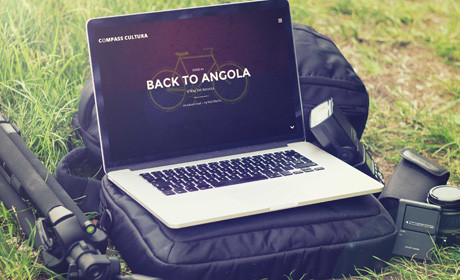
Advertising has long been the central source of funding for most journalistic endeavours, but digital advertising revenues still fall far short of their equivalent in print.
So digital travel magazine Compass Cultura is one of a number of projects experimenting with reader subscriptions as the only source of funding. Publishing three in-depth articles each issue without featuring any advertising, the publication offers one free article a month, after which subscriptions cost $2 a month or $20 a year.
"It's not a start-up. Nor is it a typical online magazine. It's more like a basement chemistry experiment. Grass roots and boot-strapped," said Jeff Campagna, founder and creative director of Compass Cultura.
He said the magazine would never move towards native advertising or Google Adsense, despite the modest growth of "conversions". To become fully self-sustainable, Compass Cultura needs between 700 and 1000 subscribers, and Campagna said the magazine is a "minimum viable product" until that point is reached.
"Personally, I think approaching venture capitalists and asking for capital to fund a basement chemistry experiment is irresponsible and, to a certain degree, represents a flaw in popular start-up culture," he said. "We want to be funded by our readers."
The revenue model has so far worked "well enough, though not remarkably," he said, adding this could be attributed to the relatively low number of pieces published.
The second issue went online on 16 September, bringing the total number of articles to six. In the future, Campagna plans to double the number of articles in each issue without increasing the subscription price.
"As the number of articles published on Compass Cultura increases, so too will the perceived value of subscribing," he said. "If all goes well, this will result in somewhat of an exponential growth pattern."
Relying only on subscription revenue is not a new idea, as Dutch news site De Correspondent for example raised 1.7 million dollars in crowdfunding by offering advance subscriptions to the site before any articles were published. But Campagna has chosen to skip building an early funding base and instead focus on "demand-driven growth" now the magazine is live.
To offer content to its subscribers without 'pre-funding', Compass Cultura has partnered with print publications like Arc Magazine and Makeshift Magazine who agreed to share some of their copy, and receives articles from contributors.

Image from Compass Cultura
"We're looking forward to being able to compensate writers more with each issue," he said, "but we're finding many journalists are simply excited to contribute to a publication that not only rails against 'big advertising' but also fills a currently under-explored niche in the market."
Compass Cultura's articles are a mix of narrative, long form pieces and fact-checked investigative reporting. When travel writing can feel one-dimensional and "bloggy", he said, Compass Cultura is looking for more in-depth stories.
"We are not interested in the over-arching summaries about interesting places that you would find in the travel section of your local daily," he said. "We prefer publishing stories that explore something unique and newsworthy, and are framed by bold descriptions of people and their surroundings."
As an "evolving service", Compass Cultura has also been made available in .mobi and .epub formats for e-readers. "Small leaps like this contribute to our reader-prioritized philosophy and keep us up to speed with the competition, not that there is much."
Campagna said he hoped his reader-first approach to publishing and experiment with the niche publication would encourage others to create their own projects, and he was invited to speak at The Guardian's Future of Magazine Publishing masterclass. He said "the reading public really does need more high-quality, low-cost alternatives to major online media publishers".
"We really just wanted to launch a barebones product and see what people thought of it," he said. "Turns out they like it, so now we're in the process of evolving it."
Free daily newsletter
If you like our news and feature articles, you can sign up to receive our free daily (Mon-Fri) email newsletter (mobile friendly).
Related articles
- WAN-IFRA World Press Trends and Outlook: Five insights from 15 years of reports
- Digital News Report 2023: Five trends to watch in the UK
- Croatian investigative startup Telegram bets on subscriptions to drive revenue
- Reuters Institute predictions for 2022: nine trends you need to know about
- By dropping its paywall for a day, the FT lost out on subscriptions but found new, engaged audience









